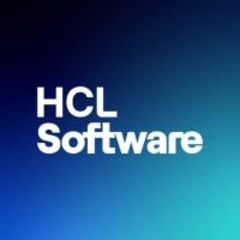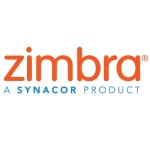What is our primary use case?
HCL Notes is a document-oriented database application you can use for things like workflow, information sharing, etc. It's not a business application that does accounting or something like that. You use it on the knowledge side of the organization. People used to think of Lotus Notes and IBM Notes as just email products, but it's far more than that.
I have a software development kit I developed called Notes Tracker. If people purchase a license for Notes Tracker, they can then use it and merge it with their applications. For example, they can see who's contributing, using, or deleting information. It's a general-purpose tool. So I deal with a lot of people who are modifying their applications.
What is most valuable?
HCL Notes has fantastic built-in security. The email and personal communication components are excellent, but they are some applications provided by HCL that Notes previously provided when it was under IBM and Lotus. Everyone wants email, so that's just part of the product. However, more savvy users can build their own solutions for managing information, and that's the great thing about it.
It's a user-friendly tool for knowledge-sharing applications, and it has great backward compatibility. For example, I started using Notes in 1993. You can take an application from 1993, and it will run without alteration on the latest version of Notes in 2022.
Some products from Microsoft and other vendors have to change every year. For example, the early Windows application was 16-bit and they increased that to 32 bits with Windows 95 in the mid-1990s. A decade later, they made 64-bit applications possible.
You have to get a brand-new of your application every time Microsoft changes the underlying architecture, but HCL Notes will let you install an application on the latest release, and runs without issue. You can enhance the application to make use of the new features in the latest release, but you can also run it the way it was built back in 1993.
What needs improvement?
I would like to HCL update Notes' development tool and make it more attractive like Microsoft Visual Studio and similar products. For example, there's a programming language that I used for my product Woodpecker called LotusScript. LotusScript has been available since around 1995. When LotusScript was released, it was like the original Visual Basic, but it has improved since then.
The development tool uses LotusScript, and the language has improved somewhat but hasn't gotten the facelift that Microsoft did for Visual Studio. At the same time, you could probably say the same about other development tools.
For how long have I used the solution?
I used to work at IBM. I started there in 1970 and left after 25 years. In 1993, I started working with Lotus Notes, then IBM acquired it three or four years later and renamed it Domino. IBM sold a lot of software to HCL Technologies in 2018, and it became HCL Notes.
I've recently started using HCL Notes again. I have a product called Notes Tracker, which people can add to their applications to see what's happening and understand their applications better. I run a small development company, but my clients range in size. My smallest customers have a few users, but I also work with large banks and insurance companies.
What do I think about the stability of the solution?
HCL Notes is extremely stable. Every application from any vendor has issues, but Notes is a highly reliable and secure product. In my early days, 30 years ago, I worked in systems, networking, and communications performance. I've changed my focus to solving problems.
What do I think about the scalability of the solution?
I don't work in the field anymore, but people tell me HCL Notes is highly scalable. HCL has added improvements to make it more scalable and stable in the last release. One of the significant improvements is integrating more seamlessly with applications from other major vendors like Microsoft and Oracle.
In particular, they've added more capacity to interact with mobile platforms. People use smartphones for everything, and that's one area where HCL has improved in the last few releases. It works with mobile platforms, social media applications, etc.
I've had clients with a few users or a small department within a large organization. For example, I had a client in South Africa who ran a small marketing group made up of individuals around the world. He said it was highly effective in helping them manage their workload. It also works for large banks and insurance companies.
How are customer service and support?
My interactions with HCL have been good, but I haven't had many issues. I have an extensive technical background, so I don't need much support, but they've got some highly skilled people.
Which solution did I use previously and why did I switch?
We had a company here in Melbourne that sells accounting software. They had different accounting applications, and you could buy one or a suite, and they would all interact with each other. They used Notes for a lot of their work, but they primarily used Microsoft software running on Windows.
About five or 10 years ago, the company decided to stop using Notes internally and rewrite all the internal applications to change them from notes to Microsoft tools. I worked with one project manager who said, "This is terrible. We've got some absolutely brilliant applications running in Notes that do the job perfectly." But the company decided to stop using Notes and use Microsoft products because they address the Microsoft uses.
He said that perfectly good applications are being thrown out to transition internal applications to Microsoft. He told me that Microsoft solutions are weak compared to Notes. They had to go through a painful migration process to migrate to the Microsoft solution. I presume it was Visual Basic or something. It was a horrible process and cost them time and money.
How was the initial setup?
I provide my clients with everything they need to install the product and deploy it. In the case of my Notes Tracker product, deploying means getting a Notes developer to take the client applications. It might be a knowledge-sharing or workflow application. Still, they use my Notes Tracker product to add extra functionality to their workflow or knowledge-sharing applications.
I provide carefully designed documentation and examples. Clients rarely ask for help deploying it. They tell me it's straightforward. It's probably a bit different from some other vendors who have applications. It just depends. I've been in the IT industry since '90, so extremely aware of all the usual deployment issues.
I designed my own Notes Tracker product to be as painless to use as possible, but many software vendors don't do that. People criticize Notes because its appearance is outdated, and I agree, but behind that lackluster look is an extremely substantial platform for knowledge management, information sharing, monitoring, workflow, etc.
Notes Tracker only takes a few weeks to learn. Once they've done that, they don't contact me anymore. They take their applications one at a time and use Notes Tracker to enhance them. I rarely, if ever, hear from them after the initial contact.
What's my experience with pricing, setup cost, and licensing?
I think the pricing is reasonable for the product. It's a rock-solid solution based on the original Lotus Notes designed in the late 1980s. By the third release, it was already a stable, secure product, and it continues to improve with each release.
The original Lotus had one license, but they changed to the IBM licensing model after the acquisition. When HCL took over, they used yet a different model. Now, you buy the base platform and tack on extra features. You only pay for what you need. That's one advantage, and it's not a bad way of doing things.
I can't give any figures, but some people hate the pricing model, and others love it. It's advantageous to their business, and they don't need to change their applications when different releases with new features. They can keep applications and upgrade Notes.
What other advice do I have?
I rate HCL Notes nine out of 10. It has some issues, but HCL has done a lot of work to enhance it since they acquired the product in 2018. The weaknesses are disappearing with each new release. They continue to fix things and add new features with every release.
I recommend it. I've been forced to use some internet-based applications that were absolutely terrible. If only they had used something like Notes, it would be much more user-friendly and offer better value for money.
Some people are fanatical and they give Notes a rating of 10 out 10. Some people say it's terrible and rate it two or three, but I'd give it a solid eight or nine in most cases. There are still a few issues that need to be worked out, but HCL has been working hard to resolve some of the long-standing problems with Notes. Most of the older issues with Notes that people complain about have been fixed in the latest releases. My advice to prospective users is to get help from an HCL business partner.
Which deployment model are you using for this solution?
On-premises
Disclosure: My company does not have a business relationship with this vendor other than being a customer.











